Mozambican president planning Russia visit – FM | RT report
Africa / Mozambique: Guterres supports UN Security Council mandate for peace-enforcement and counter-terrorism operations – Watch
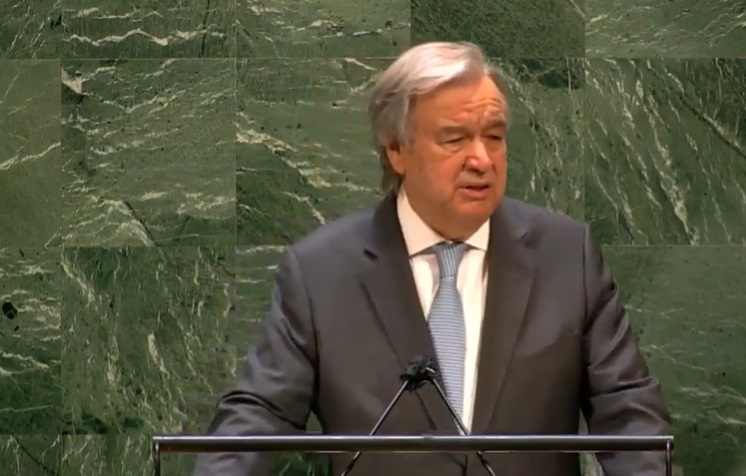
Screen grab: UNTV LIVE
The secretary general of the United Nations, António Guterres, defended on Thursday that African peace-enforcement and counter-terrorism operations, including any future multinational collaborations, must receive a mandate from the UN Security Council under Chapter VII and sufficient and predictable funding, including assessed contributions.
In his address on the United Nations’ 2021 priorities at the General Assembly yesterday, Guterres said that one of the UN’s priorities for the year will be “to heal geopolitical rifts and find common ground,” pointing out that, “to address today’s roiling peace and security threats we need to find a bridge back to common sense, we need a united Security Council”.
Guterres said that Mozambique and other areas in Africa where “we see terrorism rising” are a source of great concern.
“In the Sahel, Lake Chad, Democratic Republic of the Congo and Mozambique, we see terrorism rising in the absence of effective security arrangements and insufficient capacity to address economic, climatic and social root causes,.” he said.
“It is time to recognise the need for African peace-enforcement and counter-terrorism operations to receive a mandate by the Security Council under Chapter VII and sufficient and predictable funding, including assessed contributions,” urged Guterres.
“Our peacekeeping operations are totally committed to the protection of civilians in volatile situations and are providing vital support to peace processes. But, they operate more and more in areas where there is no peace to keep. Already this year, nine peacekeepers have been killed in hostile incidents,” added the UN Secretary General.
“We must ensure that every peacekeeping mission and every peacekeeper possesses the full resources and equipment necessary to fulfil their duties. We will continue to implement the reforms, namely the Action for Peacekeeping. We need a global ceasefire, but we must also intensify our efforts to prevent crises from erupting in the first place. Unity and peace are possible. We must make it happen. Together,” said Guterres.
Press conference
Then, in a press conference, António Guterres said, in response to Lusa, that he confidently believes that peace-enforcement operations in Africa that include counterterrorism should receive specific funding and a mandate from the UN Security Council under the Chapter Seventh of the United Nations Charter, in resolutions that become mandatory and binding.
“These African forces should be able to function with a strong mandate – Chapter Seventh of the UN Security Council – and with predictable funding, namely with fixed contributions”, defended the UN secretary-general.
In clarifications to Lusa, António Guterres used the example of existing missions in Africa such as the G5 Sahel forces, the African Union Mission in Somalia or the multinational force in Chad and other forces that can still be created.
“Eventually, if tomorrow Africans decide on a form of cooperation, for example between countries in the south in relation to the threat of terrorism,” he said.
“If we look at G5 Sahel or Lake Chad, these operations have no mandate under Chapter Seventh and are funded based on voluntary contributions, which creates a level of uncertainty, which does not allow for an effective security platform to deal with problems terrorism in these areas, ”said Guterres.
Thus, the secretary-general wants the international community to recognize that peacekeeping missions in Africa must be supported with a mandate by the Security Council and must have access to “all the necessary resources and equipment”.
António Guterres also argued that the United Nations should continue to support reforms within the framework of the Action for the Maintenance of Peace, a reform plan known as the A4P initiative.
The armed violence in Cabo Delgado that started about three years ago is causing a humanitarian crisis with more than two thousand deaths and 560 thousand displaced people, without housing or food, mainly concentrated in the provincial capital, Pemba.
Some of the insurgent incursions have been claimed by the Islamic State ‘jihadist’ group since 2019.


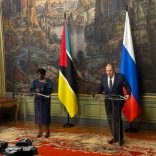

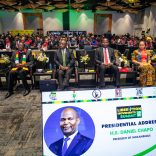
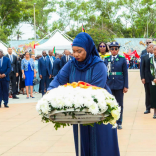

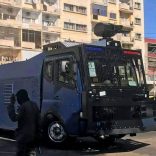





Leave a Reply
Be the First to Comment!
You must be logged in to post a comment.
You must be logged in to post a comment.